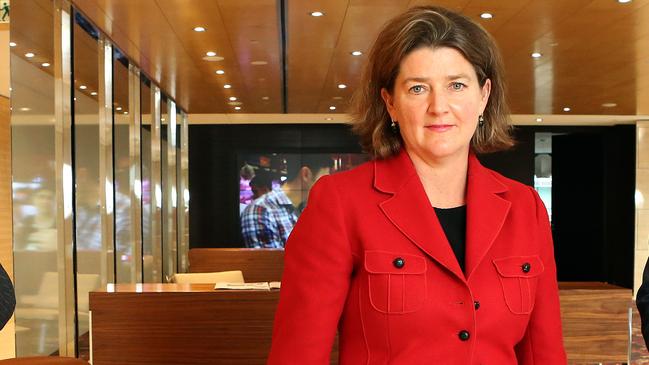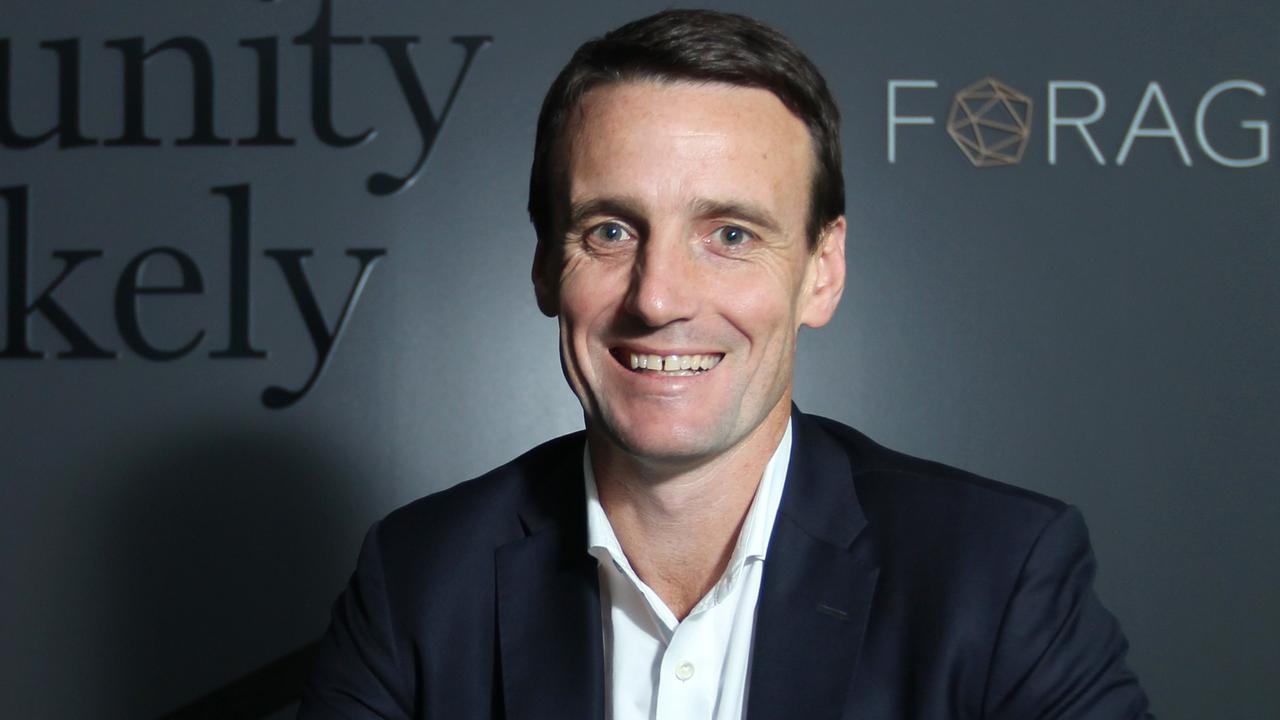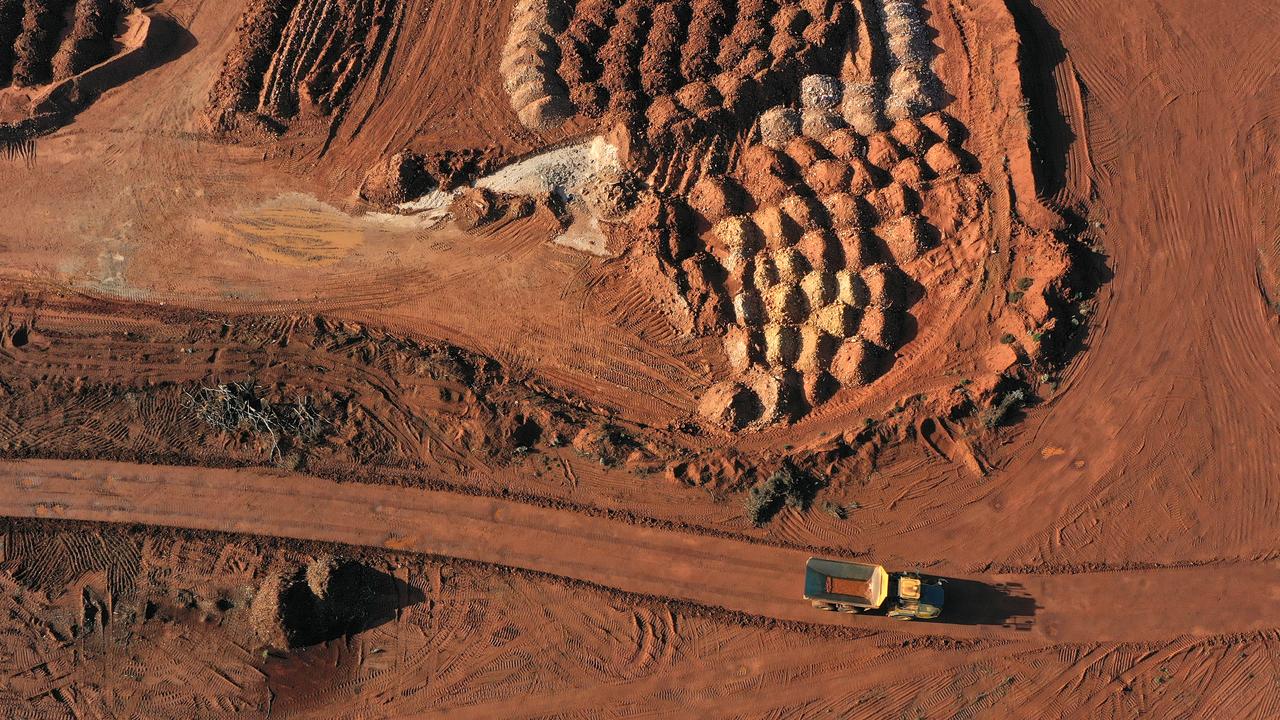BlackRock fund looking beyond the lockdowns, says Madeleine Beaumont
BlackRock’s Madeleine Beaumont is still finding value in Australian shares despite a record high market.

BlackRock’s Madeleine Beaumont is still finding value in Australian shares despite a record high market.
As Covid-19 lockdowns threaten to cause a sharp economic downturn in the September quarter and variant strains of coronavirus pose risks to reopening, the BlackRock portfolio manager points to a sustained pick-up in corporate advertising as a measure of confidence in the Australian consumer.
The BlackRock High Conviction Future Companies Fund that she leads has made 14.7 per cent net of fees per annum versus 10.9 per cent for the broader ASX 300 index since inception in October 2016. The fund returned 42.9 per cent last financial year versus 28.49 per cent for the index.
The BlackRock Fundamental Active Equities team collectively manages over $700m across similar high conviction strategies including the flagship BlackRock High Conviction Australian Equity Fund.
BlackRock is the world’s biggest fund manager, with $US9.5 trillion ($12.8 trillion) under management globally, including $US3 trillion in passive funds.
Beaumont has covered the consumer, media, retail and tech sectors for over 25 years.
When the fund started the information technology sector was just 1 per cent of the local market but is now close to 6 per cent after faster growth than most would have predicted.
But in terms of technology, the fund looks for companies that are leading in the technology in their specific industry, without necessarily being in the tech sector.
“If you’ve invested ahead of the curve in technology, you’re going to be the winner in your space,” Beaumont says.
To understand the recent reporting season, she points to the start of the pandemic and what companies did at a time when the outlook looked much worse than it turned out to be.
“Most companies cut costs aggressively – we saw advertising fall between 30 and 40 per cent – and even some of the eventual winners from Covid-19, like companies that benefiting from the stay-at-home trend, were cutting staff costs and advertising costs, and also raising equity capital.
“Fast-forward to the results season we’ve just had, and because of that cost cutting, and the fact that the economy was actually much more resilient than anyone could have predicted, we’ve actually had a very good results season particularly in the consumer space.”
Of course the big question now is to what extent this improvement will be sustainable.
Beaumont says this needs to be assessed sector by sector, but the signs overall are good.
“Pleasingly, what we are seeing is advertising has bounced back very strongly.”
She sees a positive outlook for corporate brand building after a rebound that started last financial year, particularly in free-to-air TV and broadcast video on demand.
Encouragingly, the latest round of Covid-19 lockdowns in NSW and Victoria since July haven’t diminished corporate Australia’s desire to spend on advertising.
“If anything, corporate spending on advertising has accelerated since then,” Beaumont says.
“Companies are looking through the current downturn, in terms of building their brand.”
After corporate balance sheets were strengthened by cost-cutting and capital raisings in 2020, businesses now have the confidence to reinvest in advertising.
BVOD – or “catch up TV” – allows advertisers to better target certain demographics.
It’s a good sign for the media industry and shows confidence in the domestic consumption outlook.
But some consumer-facing companies, particularly in the travel industry, with operations that have been significantly halted by lockdowns, will be experiencing considerable cash burn, she cautions.
“The obvious one is the travel industry that’s still burning cash and in some ways putting on a brave face about how quickly that will turn around.
“We are not actually invested much in this space because we think people are being too simplistic about what to look for in rebounds, and they go to these stocks naturally because, I think emotionally, almost, they want to travel themselves.”
In her view, domestic tourism is a better place over the next two years to play a rebound.
While the states now have varying lockdowns and border closures, she thinks people will be “be a little bit more cautious about overseas travel” particularly in cases where some family members may be too young to be vaccinated.
But while “the bigger travel companies are the obvious ones that people have been buying”, they are “quite expensive”.
Her fund has a smaller domestic tourism play which is “more interesting in terms of where people will go” and isn’t suffering so much cash burn.
Some of the bigger travel companies are “very capital intensive” and had business models that “already challenged pre-Covid”.
But because of the stronger than expected economy and capital raisings undertaken last year, many companies have strong balance sheets and she expects heightened merger and acquisition activity as an ongoing theme.
“Some of the companies we have shareholdings in have already made small acquisitions but they are definitely still looking (for acquisitions) and I would like to highlight the auto dealers – the car dealership market – which is unusually fragmented here in Australia,” she says.
The leading company only has an 11 per cent market share.
“It is not a concentrated sector so I do think it’s an area that’s ripe for consolidation,” she says.
Peter Warren Automotive was a top 10 shareholding of the fund according to a recent update.
“We’ve had one company list, recently, a dealer group that clearly has the balance sheet to do some acquisitions, and coming back to technology, even in that very ‘old school’ industry, they are leading with how much they have invested in technology, in digital marketing.
“That’s another industry that will consolidate, driven by the need for digital technology.”







To join the conversation, please log in. Don't have an account? Register
Join the conversation, you are commenting as Logout